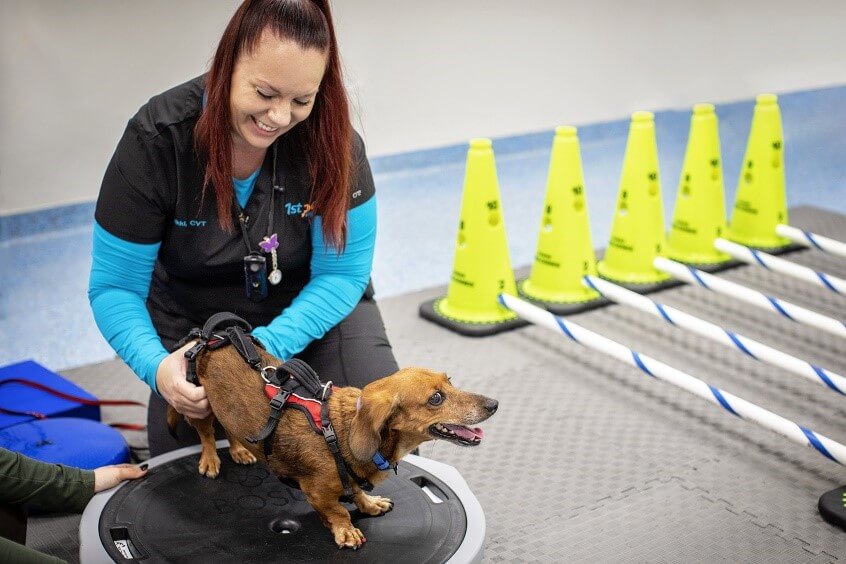Does your dog need rehab? Just like human patients, canines can also benefit from this healthcare service. If you’re a dog owner, take a look at the top reasons for rehab and what you can expect from the process.
Reasons for Rehab
An injury, arthritis, and age can limit your dog’s mobility and range of motion. Without the ability to move as well, your dog is at risk for additional injuries and potential weight gain. The more mobile your dog is, the healthier they are and the better quality of life they’ll have.
What specific problems bring dogs to rehabilitation therapy? While a wide variety of potential issues exist, some of the most common causes include:
- Surgery. Rehab can help your dog heal and get back to their active self after a joint or other similar surgery.
- Pain. Is your dog in pain? Rehab can help reduce pain related to injuries and chronic conditions. Rehab can help alleviate pain along with the use of pain medications. The best results are met when a good pain management regimen is in place.
- Overuse. Overuse injuries that don’t require surgery can benefit from rehab. This type of therapy can reduce swelling, pain, and other issues associated with overuse and help your dog increase mobility.
- Arthritis. Like human arthritis, canine arthritis causes painful swelling of the joints. Cartilage breakdown in this degenerative joint disease can stop your dog in their tracks and decrease their overall activity level. While no cure exists, rehab can reduce the symptoms.
- Geriatric issues. Aging dogs, like aging humans, often have range-of-motion and mobility issues. If your older pup is sluggish, has trouble moving, or is in pain, rehab can help.
- Nerve injuries. Nerve issues that prevent or restrict movement can cause serious pain. Rehab can help to alleviate discomfort.
How can the vet help to improve your pet’s range of motions? Therapeutic activities and exercises can increase your pet’s mobility. Read on for more information on the types and uses of canine rehab.
Types of Rehabilitation
The specific type of rehab, or rehab activities, your vet recommends depends on several factors. These can include your dog’s age, overall health, underlying problem, and preference. Common types of rehab therapy include:
- Underwater treadmill. This aquatic activity can reduce discomfort and build range of motion in dogs recovering from surgery, reduce weight (especially in dogs with joint issues), improve strength, and much more. Your pet will move on the treadmill with the added benefits water offers.
- Swimming. If your dog is physically able to swim, this type of aquatic therapy (under professional supervision) can contribute to weight loss, build muscle mass, and improve agility.
- Cold laser therapy. The veterinary staff will use a laser to stimulate cell regeneration, improve circulation and reduce inflammation and pain. This can help dogs with arthritis, tendon injuries and much more.
- Acupuncture. Acupuncture for canines, like humans, involves the use of specialized needles to stimulate the body’s release of natural, anti-inflammatory and pain-relieving substances.
- Therapeutic exercises. A qualified canine rehabilitation veterinarian and/or technician can create a movement or exercise plan for your dog. Dogs with injuries (including post-surgical recovery), arthritis, and other mobility restrictions can benefit from targeted exercises.
If you’re not sure which type of rehab therapy is right for your dog, talk to your veterinarian. Discuss your dog’s diagnosis, the available therapies, price ranges, and what options will work best for your pet’s condition. Your vet may possibly recommend one therapy or a combination of rehab strategies to help your dog reach target movement or pain-reduction goals.
Does your dog have arthritis, an injury, or another issue that may benefit from rehab? We have a rehabilitation therapy department that offer most of the above therapies at our Mesa and North Valley locations. Contact 1st Pet Veterinary Centers for more information.

